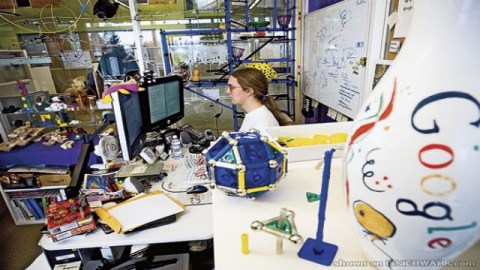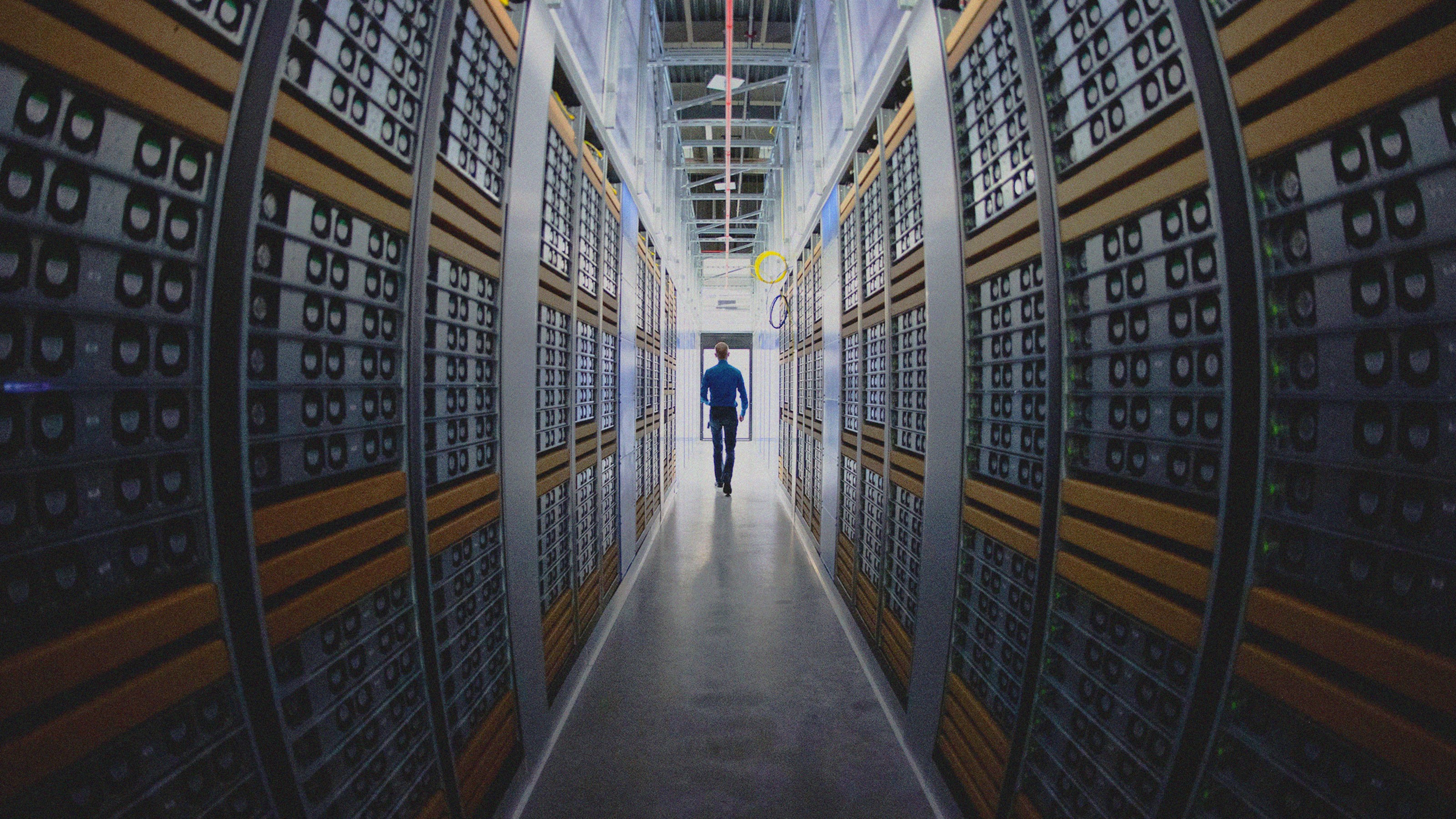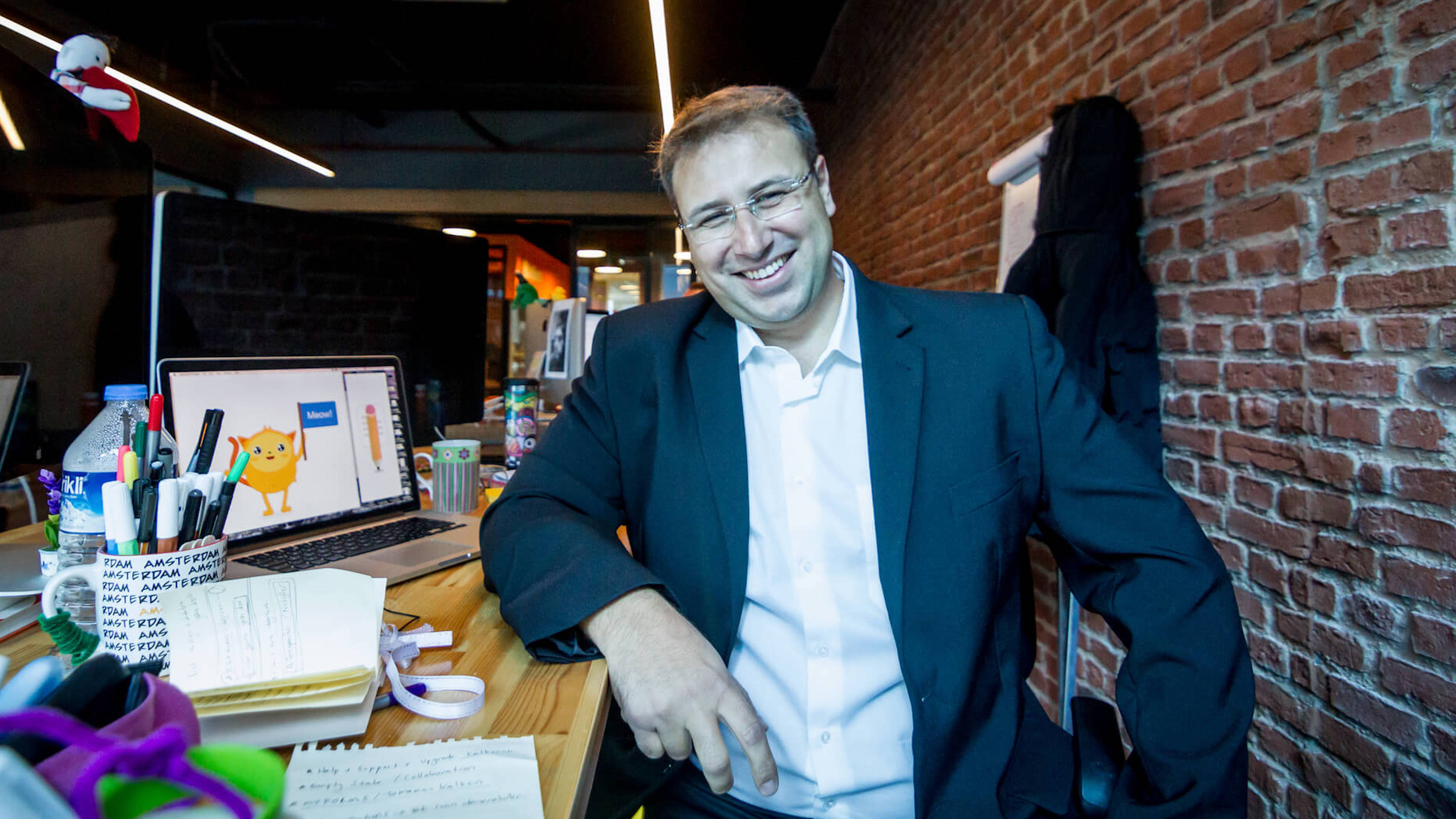The Four Day Work Week
According to psychologist Dan Ariely, Google’s policy of giving employees free reign over 20% of their work week – one full day out of five – makes for happier, more passionate workers and a better, more creative company.

Sign up for the Smarter Faster newsletter
A weekly newsletter featuring the biggest ideas from the smartest people
According to psychologist Dan Ariely, Google’s policy of giving employees free reign over 20% of their work week – one full day out of five – makes for happier, more passionate workers and a better, more creative company.
What’s the Big Idea?
You are busy. Crazy busy. You’re going nonstop. 10 cups of coffee a day. No lunch breaks for you, Buster. You’re always the first one in the office and the last one to leave. Your recycling bin is overflowing with completed checklists. And yet, you feel like Sisyphus, schlepping that boulder up the hill each day only to have it roll back down to the bottom again. Promotion is nice when it comes – it means higher pay and a momentary sense of upward momentum – but without perspective, passion, a sense of higher purpose? Well, you’re just trading one treadmill for another, slightly posher model.
Between “the rat race” and retiring to Hawaii there’s a saner middle ground – a scenario in which people’s work lives are far less “busy” and far more productive. Where people spend less time plowing through checklists and more time solving problems creatively – for pay, of course, but also for the joy and sense of accomplishment this brings. Let’s not kid ourselves. A person screwing caps on ketchup bottles for a living is not likely to find deep, personal satisfaction on the job. But for the vast number of idea workers in the present and future economy, there’s a better way.
Psychologist Dan Ariely, author of The Upside of Irrationality, cites the example of Google, whose engineers are free to use 20% of their work week (one full day) any way they want. Google’s betting that its highly creative employees will devote at least some of that time to projects that benefit the company. An even surer bet is that they’ll be working hard – in the best sense of the phrase – the other 80% of their time, happy to invest their energy in a company that respects their autonomy and views them not only as employees, but as people.
What’s the Significance?
Until his untimely death at the age of 31, Eric Rauch was a biologist and theoretical ecologist at MIT. In his articleProductivity and the Workweek, he argues that while productivity has steadily increased in developed countries since 1950, workers’ subjective sense of well-being has not seen a similar increase. In other words, the work week could be drastically shortened without painfully reducing workers’ standards of living. In fact, Rauch points out, “shorter hours were assumed to be a natural consequence of increased productivity in the US until the 1930’s, appearing in the platforms of all major parties.”
But what would we do with all that free time? According to Dan Ariely, lots of things – some directly work-related, some not, but all likely to improve the quality of our working lives. Humans are not, Ariely notes, motivated only by money on the one hand and the desire to sunbathe while sipping martinis on the other. Ironically, a shorter “official” work week would likely weaken the defensive barriers many employees erect between work and play, freeing their minds to reach “a-ha” solutions to work-related problems even while sunbathing, and to use their time at the office more efficiently and effectively.
You are busy. Crazy busy. You’re going nonstop. 10 cups of coffee a day. No lunch breaks for you, Buster. You’re always the first one in the office and the last one to leave. Your recycling bin is overflowing with completed checklists. And yet, you feel like Sisyphus, schlepping that boulder up the hill each day only to have it roll back down to the bottom again. Promotion is nice when it comes – it means higher pay and a momentary sense of upward momentum – but without perspective, passion, a sense of higher purpose? Well, you’re just trading one treadmill for another, slightly posher model.
Between “the rat race” and retiring to Hawaii there’s a saner middle ground – a scenario in which people’s work lives are far less “busy” and far more productive. Where people spend less time plowing through checklists and more time solving problems creatively – for pay, of course, but also for the joy and sense of accomplishment this brings. Let’s not kid ourselves. A person screwing caps on ketchup bottles for a living is not likely to find deep, personal satisfaction on the job. But for the vast number of idea workers in the present and future economy, there’s a better way.
Psychologist Dan Ariely, author of The Upside of Irrationality, cites the example of Google, whose engineers are free to use 20% of their work week (one full day) any way they want. Google’s betting that its highly creative employees will devote at least some of that time to projects that benefit the company. An even surer bet is that they’ll be working hard – in the best sense of the phrase – the other 80% of their time, happy to invest their energy in a company that respects their autonomy and views them not only as employees, but as people.
What’s the Significance?
Until his untimely death at the age of 31, Eric Rauch was a biologist and theoretical ecologist at MIT. In his articleProductivity and the Workweek, he argues that while productivity has steadily increased in developed countries since 1950, workers’ subjective sense of well-being has not seen a similar increase. In other words, the work week could be drastically shortened without painfully reducing workers’ standards of living. In fact, Rauch points out, “shorter hours were assumed to be a natural consequence of increased productivity in the US until the 1930’s, appearing in the platforms of all major parties.”
But what would we do with all that free time? According to Dan Ariely, lots of things – some directly work-related, some not, but all likely to improve the quality of our working lives. Humans are not, Ariely notes, motivated only by money on the one hand and the desire to sunbathe while sipping martinis on the other. Ironically, a shorter “official” work week would likely weaken the defensive barriers many employees erect between work and play, freeing their minds to reach “a-ha” solutions to work-related problems even while sunbathing, and to use their time at the office more efficiently and effectively.
For companies curious – yet anxious – about becoming more Google-like, a first step might be to take a hard look at your office culture. Do people seem relaxed and enthusiastic about their jobs? Do they spontaneously share ideas and collaborate informally when problems arise? Or is everybody hunched over his or her respective desk all day, radiating a “Harder-Working-Than-Thou” aura?
If b), ask yourself this: is all that hard work translating into the kind of innovation and progress your company dreams of? Chances are it isn’t. The reason, says Ariely, is that human productivity isn’t a simple “numbers game.” And any job that robots won’t be doing 50 years from now needs an employee with a sense of balance and personal freedom, not a slave mentality.
If b), ask yourself this: is all that hard work translating into the kind of innovation and progress your company dreams of? Chances are it isn’t. The reason, says Ariely, is that human productivity isn’t a simple “numbers game.” And any job that robots won’t be doing 50 years from now needs an employee with a sense of balance and personal freedom, not a slave mentality.
This post is part of the series Inside Employees’ Minds, presented by Mercer.
Sign up for the Smarter Faster newsletter
A weekly newsletter featuring the biggest ideas from the smartest people





